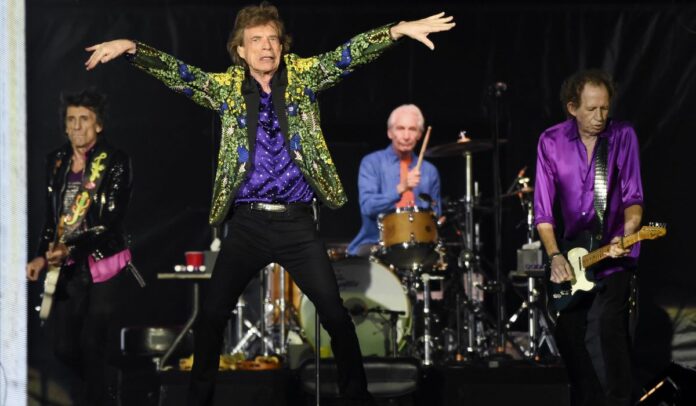Dozens of major recording artists pressed Republican and Democratic committees on Tuesday to ask and receive permission before playing copyrighted music on the campaign trail.
A coalition of groups including Aerosmith, Green Day, R.E.M and members of The Rolling Stone made the request in an open letter organized by the non-profit Artist Rights Alliance.
Sent to the Democratic and Republican national, congressional and senatorial committees, the letter asks their leaders to establish clear policies requiring that campaigns seek the consent from the appropriate performer, songwriter or copyright holder before publicly using their music in a political or campaign setting.
“This is the only way to effectively protect your candidates from legal risk, unnecessary public controversy and the moral quagmire that comes from falsely claiming or implying an artist’s support or distorting an artists’ expression in such a high stakes public way,” the artists wrote.
“Being dragged unwillingly into politics in this way can compromise an artist’s personal values while disappointing and alienating fans – with great moral and economic cost,” the musicians added. “For artists that do choose to engage politically in campaigns or other contexts, this kind of unauthorized public use confuses their message and undermines their effectiveness.”
More than 50 artists signed the letter, including the aforementioned Rock and Roll Hall of Fame inductees in addition to dozens of other acclaimed acts spanning multiple genres.
Indeed, a number of the co-signers have previously complained publicly about President Trump’s campaign having played their music without permission, among them Aerosmith frontman Steven Tyler and R.E.M. Mr. Tyler issued a cease-and-desist letter after his song “Livin’ on the Edge” was played at a 2018 Trump rally, for example; more recently, R.E.M. bassist Mike Mills said in January the “Everybody Hurts” and “Losing My Religion” group was considering legal action after hearing those songs played at a Trump campaign.
A sampling of co-signers of the letter includes Stones co-founders Mick Jagger and Keith Richards, as well as The B-52s, Blondie, Cyndi Lauper, Elvis Costello, Jason Isbell, John Mellencamp, Lionel Richie, Linkin Park, Lorde, Michelle Branch, Pearl Jam, T Bone Burnett and Train, among others, as well as the estate of late Nirvana frontman Kurt Cobain.
“We’ve seen so many artists and estates dragged into politics against their will and forced to take aggressive action to prohibit the use of their music — usually songs that are broadcast during political rallies or used in campaign ads,” the ARA said in a statement. “It can confuse and disappoint fans and even undermine an artists’ long-term income — and mostly, it’s just not right. Politicians that want to represent the public trust must do better — by seeking consent before exploiting an artist’s or songwriter’s image and work.”
Messages requesting comment from the Republican and Democratic national, congressional and senatorial committees were not immediately returned. November’s general and presidential elections are less than 100 days away.






